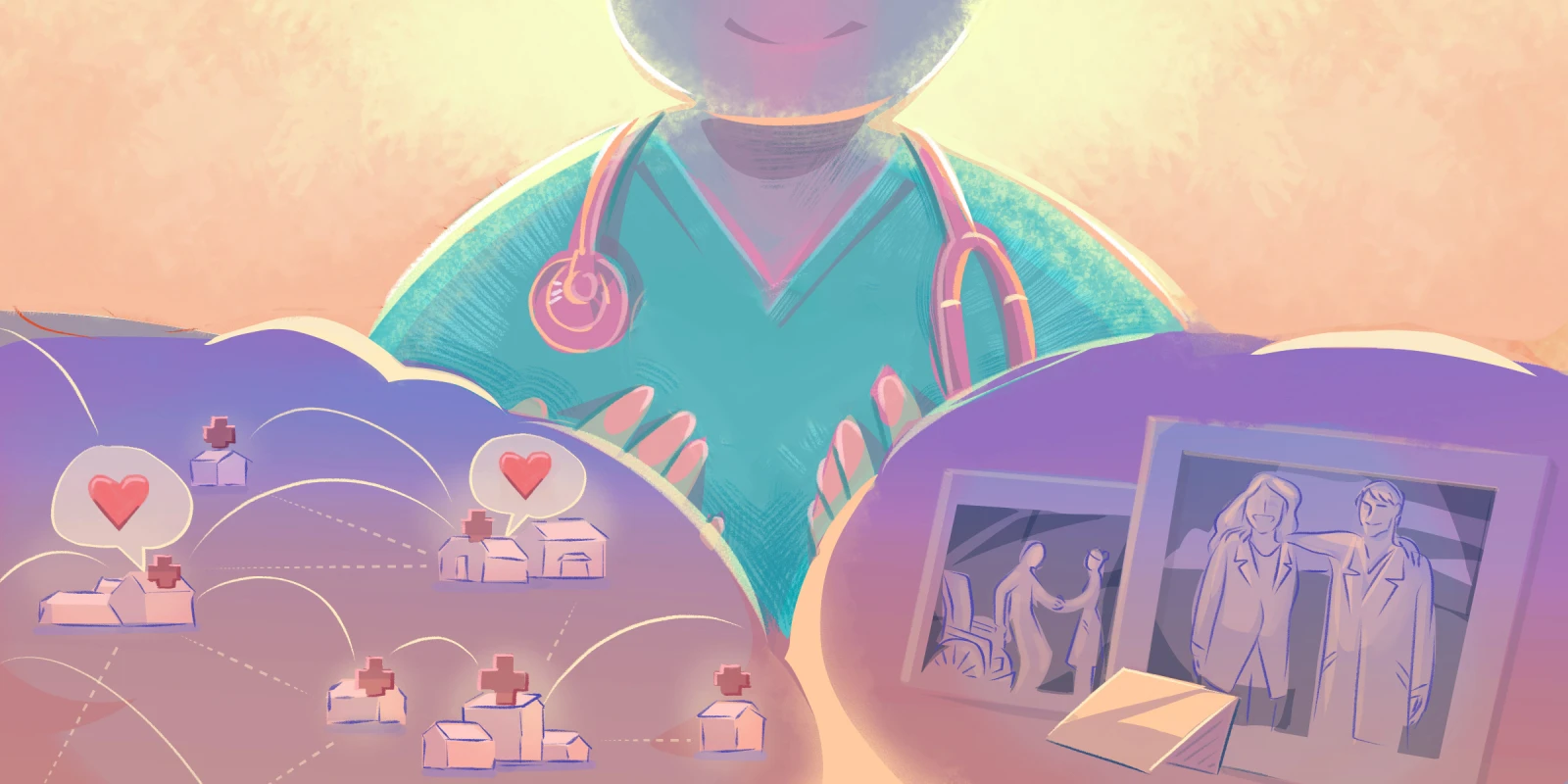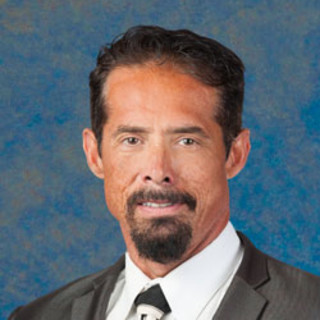At the core of it, all doctors are healers. Some of us practice as clinicians, touching and treating individual patients day in and day out. Some of us teach the future of our profession, and even more of us still conduct important scientific research in laboratories and other settings. Medicine has always been more of a vocation than a career. It attracts purpose-driven people. Whether or not it always feels this way — we all became physicians because we thought this path would allow us to help others.
One of my first mentors was an academic. He was the medical school's dean at Louisiana State University, giving me my first job in the U.S. One day, I caught a peek at his CV. It was hundreds of pages long. I asked this doctor why he would have created a document like this one. I thought he was going on the teaching market elsewhere. However, his answer surprised me. He told me he wanted to be remembered once his time ended.
Recently, I was able to create a Wikipedia page for my grandfather. But this turned out to be more challenging than straightforward. It was a struggle to convince Wikipedia editors that his impact was significant enough to have his own page, even though he was a renowned author of both scientific articles and poems, served as dean of the only school of pharmacy on the island of Puerto Rico for more than 40 years, and founded a museum bearing his name. In the end, I could do it, and now there is a page highlighting my grandfather’s life accomplishments on Wikipedia.
The conscious legacy building may seem like a narcissistic endeavor, divorced from the altruism that characterizes many doctors and their work. My thesis is that we are doing a disservice (maybe large, maybe small) to ourselves and our patients if we continue thinking about what we leave behind.
Unlike my grandfather, I don't teach or do research. I see patients. Each is their own world to explore and their own opportunity to make a difference. I take great pains to hear them out, explore the proper treatment, and follow through on care. I should be satisfied to leave it at that. After all, what is more rewarding than changing a single patient's life for the better? I certainly get immense joy from it.
This got me thinking about the question of legacy.
Not long ago, some of my fellow doctors suggested that it was unrealistic to have a goal to make a difference that is remembered after one's life is over. Nevertheless, I disagree. What does it mean to have a legacy? It means you have changed something that persists after you die.
My experience documenting and publicizing my grandfather's legacy makes it apparent why many people feel that leaving a legacy is unrealistic. The fact remains that even if one accomplishes a great deal in life, it’s hard to fathom how you will be remembered for it. This begs the question: What was my grandfather's true legacy — the many lasting and significant contributions he made to Puerto Rican society and the medical world in general, or the record of a Wikipedia page commemorating those facts?
Many of us in the medical community are motivated to study medicine to help people. Some of us are motivated for other reasons, then feel a sense of responsibility once given the tools to practice medicine and contribute to medical science.
Either way, we have choices. Two of them are that 1) we can take action to try to alleviate suffering where we see it, fix systemic problems when we find them, and contribute to the world's medical knowledge where we see knowledge gaps, or 2) we can decide that it's enough just to get by and do a good job that is satisfying and productive.
Legacies are not necessarily achieved by making the best grades or publishing the most papers but by doing what others neglect. They are made by doing or studying what has been dismissed as impossible, undetected, or unimportant. They are made by going against the current, often in the face of criticism.
In part, because I grew up under my grandfather's influence, who was famous in my homeland long before he existed on Wikipedia, the question of legacy has always been acute. How could I possibly live up to my grandfather's legacy?
By making tough decisions to impact those around me positively, I have stumbled into what I can recognize as the beginnings of a legacy. I have created a "hybrid" career path allowing physicians like myself to access the benefits of academic and private practice endeavors.
In recent years, I have become an author and speaker on the human side of medicine. I have the established orthodoxy of a professional setting for academic research. Still, I have contributed to how the medical community thinks and feels about the experiences of doctors and patients — a vital and fraught topic in the American medical system of today.
This is not to impress but to highlight the potential that everyone has to leave a legacy. No matter how limited you feel in your opportunities or responsibilities, there are ways to make a difference. Fixing the problems you feel compelled to lies in first identifying them.
So the pertinent questions are: What difference can you make in this world before you leave it? How many people will say that you are crazy for even trying? What do you have to gain from listening to them?
Legacies happen not merely because of ability or hard work but because we combine those with a sense of purpose. This is fortunate for us, as having a sense of purpose is also a significant correlate of good mental health and life satisfaction. We can expect to reap personal rewards for acting in ways that change the world even if no one remembers that we did it.
Mark Twain summed it well: "The two most important days in your life are the day you were born and the day you find out why."
Dr. Francisco Torres was born in Seville, Spain, and graduated cum laude from the University of Puerto Rico in 1982 with a degree in biology. He then attended the University of Puerto Rico School of Medicine and was awarded his medical degree in 1986. Dr. Torres performed his residency in physical medicine & rehabilitation at the VA Hospital in San Juan, Puerto Rico, before completing a musculoskeletal fellowship at Louisiana State University Medical Center in New Orleans. He went on to serve three years as Clinical Instructor of Medicine and Assistant Professor at LSU before joining Florida Spine Institute in 1993, and is the author of five books.
Illustration by April Brust







